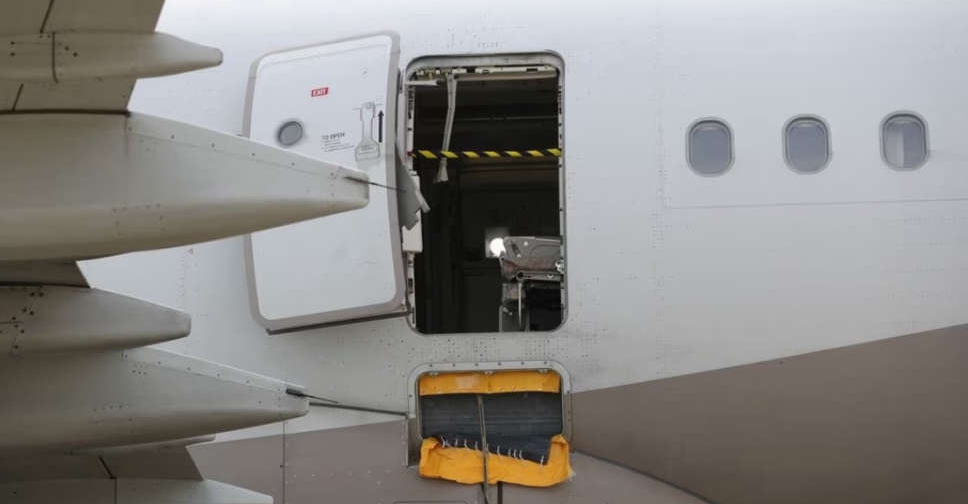
South Korean police on Friday detained a man who opened a door of an Asiana Airlines plane minutes before it was due to land in the city of Daegu, causing panic among the passengers, officials said.
The Airbus A321-200 plane landed safely at around 12:40 pm (0340 GMT). It had set off from the holiday island of Jeju an hour earlier, the airport's flight schedule showed.
Nine passengers, all teenagers, were sent to hospital after suffering breathing issues, a Daegu fire department official said.
"I thought the plane was going to explode... It looked like passengers next to the open door were fainting," an unidentified 44-year-old passenger told the Yonhap News Agency.
The passenger said the cabin crew had made an in-flight announcement asking if there were any doctors on board.
A video aired on television, reported to have been shot by a passenger, showed the moments before the landing, with a door open and wind rushing in as passengers sat nearby.
The transport ministry said in a statement police had taken into custody the man who had opened the door and authorities were investigating violations of aviation safety laws.
A transport ministry official told Reuters that authorities were looking into whether Asiana Airlines had followed protocols to manage emergency exits.
The official said it was possible to open the emergency exit when the aircraft was near the ground as the pressure inside and outside the cabin were similar.
The plane was two or three minutes away from landing when the male passenger sitting next to an emergency exit opened a cover and pulled a lever so the door opened with the plane about 200 metres off the ground, an Asiana spokesperson said.
All onboard were seated with seat belts fastened because the plane was about to land, the spokesperson said.
After the incident, pictures showed an open emergency door near the plane's left wing and a deployed escape slide ripped away from it.
"It is particularly dangerous during landing and takeoff, so someone from the flight staff should have stopped that passenger," said Sohn Myong-hwan, a professor at South Korea's Sehan University's aviation maintenance department.
"To me, it seems difficult for the airline can get away from any potential responsibility here," he said.
 Iranian President Raisi killed in helicopter accident, state media says
Iranian President Raisi killed in helicopter accident, state media says
 ICC prosecutor seeks arrest warrants for Israeli, Hamas leaders
ICC prosecutor seeks arrest warrants for Israeli, Hamas leaders
 Assange given permission to appeal against US extradition
Assange given permission to appeal against US extradition
 Israel intends to broaden Rafah sweep, Defence Minister tells US
Israel intends to broaden Rafah sweep, Defence Minister tells US
 New Taiwanese president calls on China to stop threats
New Taiwanese president calls on China to stop threats




